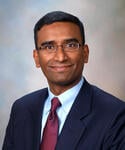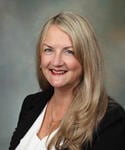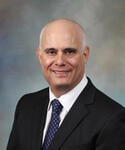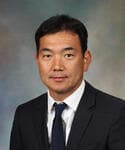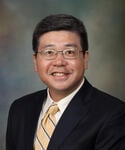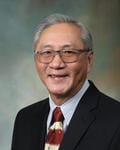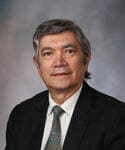Meet The Faculty
/prod01/channel_2/media/mccms/content-assets/academics/residencies-and-fellowships/advanced-endoscopy-fellowship-arizona/department-and-faculty/mccms-advanced-endoscopy-fellowship-WF608459_0026-1024X512.jpg)
The faculty members of the Division of Gastroenterology and Hepatology at Mayo Clinic in Arizona are committed to teaching and facilitating the growth of medical knowledge, as well as performing high-quality clinical care. The advanced endoscopy faculty has extensive expertise in diagnostic and therapeutic endoscopic procedures proving the advanced fellow with both a breadth and depth of training in endoscopy and clinical research.
You work closely with these individuals throughout your training in the Advanced Endoscopy Fellowship.
|
|
Rahul Pannala, M.D.Program Director Professor of Medicine Hometown: Hyderabad, India Medical school: Gandhi Medical College, Hyderabad India Residency: Bridgeport Hospital/Yale University Fellowship: Mayo Clinic Hobbies/special talents: Photography |
|
|
Michelle Anderson, M.D.Associate Professor of Medicine Medical school: Wayne State University School of Medicine Residency: University of Michigan Medical Center Fellowship: University of Michigan Medical Center |
|
|
Douglas Faigel, M.D.Professor of Medicine Hometown: Connecticut Medical school: University of Pennsylvania Residency: University of California, San Francisco Fellowship: University of Pennsylvania Any hobbies/special talents: Playing guitar, writing and recording original music, and riding motorcycles. |
|
|
Norio Fukami, M.D.Professor of Medicine Hometown: Fukuoka, Japan Medical school: Faculty of Medicine, Kyushu University, Fukuoka, Japan Residency: Kyushu University Hospital, Kyushu University, Fukuoka, Japan and Beth Israel Medical Center, New York, New York Fellowship: Harasanshin General Hospital, Faculty of Medicine, Kyushu University, Fukuoka, Japan and The University of Texas MD Anderson Cancer Center, Houston, Texas Hobbies/special talents: Cooking, golfing, and underwater diving. Soon to be motorcycle riding. |
|
|
Terry Jue, M.D.Assistant Professor of Medicine Medical school: The University of Southern California Keck School of Medicine Residency: The University of California, Davis Fellowship: The University of California, Davis and Mayo Clinic, Rochester, MN |
|
|
Cuong Nguyen, M.D.Associate Professor of Medicine Hometown: Vietnam Medical school: The Johns Hopkins University School of Medicine Residency: Scripps Clinic Fellowship: Scripps Clinic and Georgetown Hobbies/special talents: None :) |
|
|
Francisco Ramirez, M.D.Professor of Medicine Hometown: Peru Medical school: Cayetano Heredia University, Lima Perú Residency: Southern Illinois University Affiliated Hospitals Fellowship: Baylor College of Medicine Hobbies/special talents: Reading and hiking. |
Visiting professors
Many prominent professors visit Mayo Clinic each year. They present their work during morning and late-afternoon lectures. Residents and fellows are encouraged to take advantage of these opportunities to interact with experts from other academic centers and are relieved from clinical assignments to do so.
Department and facilities
Mayo Clinic in Phoenix/Scottsdale, Arizona, manages a diverse group of referral patients with gastrointestinal and liver disease from across the country and around the world. The majority of national referrals originate in Arizona and the southwestern United States. Mexico has become an increasingly large source of international referrals. This diverse referral population creates an optimal patient mix for learning.
Outpatient consultations are primarily seen at Mayo Clinic's Scottsdale campus, a large outpatient facility equipped with a 10-room endoscopy unit, including a dedicated fluoroscopy unit, a motility lab, comprehensive pathology and laboratory medicine support, extensive radiology facilities, and a full-service library.
More than 700,000 patients have been treated at this contemporary facility since it opened in 1987. Patients have a wide variety of disorders that can be managed in our various clinics including:
- Inflammatory bowel disease clinic
- Motility clinic
- Esophageal clinic
- General gastroenterology clinic
Fifteen examining rooms, all equipped with networked workstations, allow plenty of room in which to work.
Our hospital practice is based at Mayo Clinic Hospital, which has been awarded the Consumers' Choice Award annually since it opened in 1987. The hospital consists of 205 beds, including two ICUs. Hospitalized patients have critical problems in hepatobiliary disease, inflammatory bowel disease, gastrointestinal bleeding, cancer, and nutritional issues.
The hospital endoscopy unit is a four-room facility that includes state-of-the-art endoscopic equipment with electronic image management. A new digital fixed fluoroscopy unit was installed in 2010 to support ERCP and other endoscopic procedures requiring fluoroscopic imaging. New endoscopic ultrasound equipment was obtained in 2010 and 2011 to support a full range of endoscopic ultrasound and endobronchial ultrasound procedures. Capsule, single-balloon and double-balloon enteroscopy complement the unit's ability to image and treat disorders anywhere in the GI tract.
Three interventional radiologists and a large surgical team support our GI services. Liver transplants are performed routinely for patients with end-stage liver disease, including both living-donor liver transplants, as well as deceased donor transplants. Transplantation is supported by a standing complement of consultants in infectious disease, pharmacology, and physical therapy. Facilities complement patient care with a library, pathology and medical laboratories, surgical suites, and examining rooms for managing outpatients.
The endoscopy practice is extremely large and diverse, performing more than 15,000 outpatient procedures each year at both the clinic and hospital, including advanced procedures such as:
- Endoscopic ultrasound
- Radiofrequency ablation therapy
- Endoscopic mucosal resection
- Esophageal and enteral stenting
- Percutaneous gastroscopy
- ERCP
- Enteroscopy
Esophageal and gastroduodenal motility testing, hydrogen breath tests, anorectal function tests, and esophageal pH tests also are performed.
During their training, fellows have access to the following resources and support services:
- A computerized patient record system, allowing immediate access to medical records from any workstation in the clinic or hospital setting and through broadband Internet access from home and via smartphone
- Electronic access to medical journals and UpToDate
- Endoscopy simulator
- Teaching tapes for endoscopic training
- Gastroenterology, hepatology, and nutrition texts
- Pathology teaching files
- Secretarial services for patient care and academic activities
- Broadband access to the Internet through a dedicated T1 line to allow rapid literature search, slide creation, database management, word-processing, and e-mail
- Professional graphic services for slide, video, and poster presentations
- Dedicated office space
Mayo Fellows Association (MFA)
The Mayo Fellows Association (MFA) offers a peer and social support network for residents and fellows and their families with social events, athletics, and advocacy. The MFA also holds an annual resident and fellow appreciation event open to all trainees with complimentary massages, stress-reducing activities, and social support.
